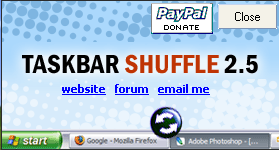Help keep the internet free

A big part of the Internet is built on LAMP (Linux, Apache, MySQL and PHP/Perl/Python). Now Oracle is trying to buy Sun, which owns MySQL.
It’s not in the Internet users interest that one key piece of the net would be owned by an entity that has more to gain by severely limiting and in the long run even killing it as an open source product than by keeping it alive. If Oracle were allowed to acquire MySQL, we would be looking at less competition among databases, which will mean higher license and support prices. In the end it’s always the consumers and the small businesses that have to pay the bills, in this case to Oracle.
Read on here at Monty’s blog (creator of MySQL) or head here for the official website.
Help keep the internet free Read More »




